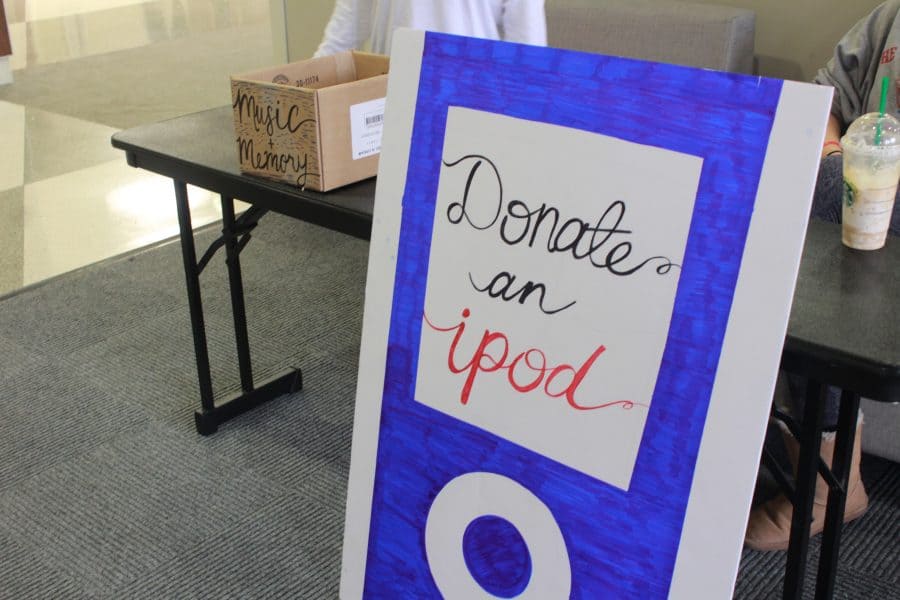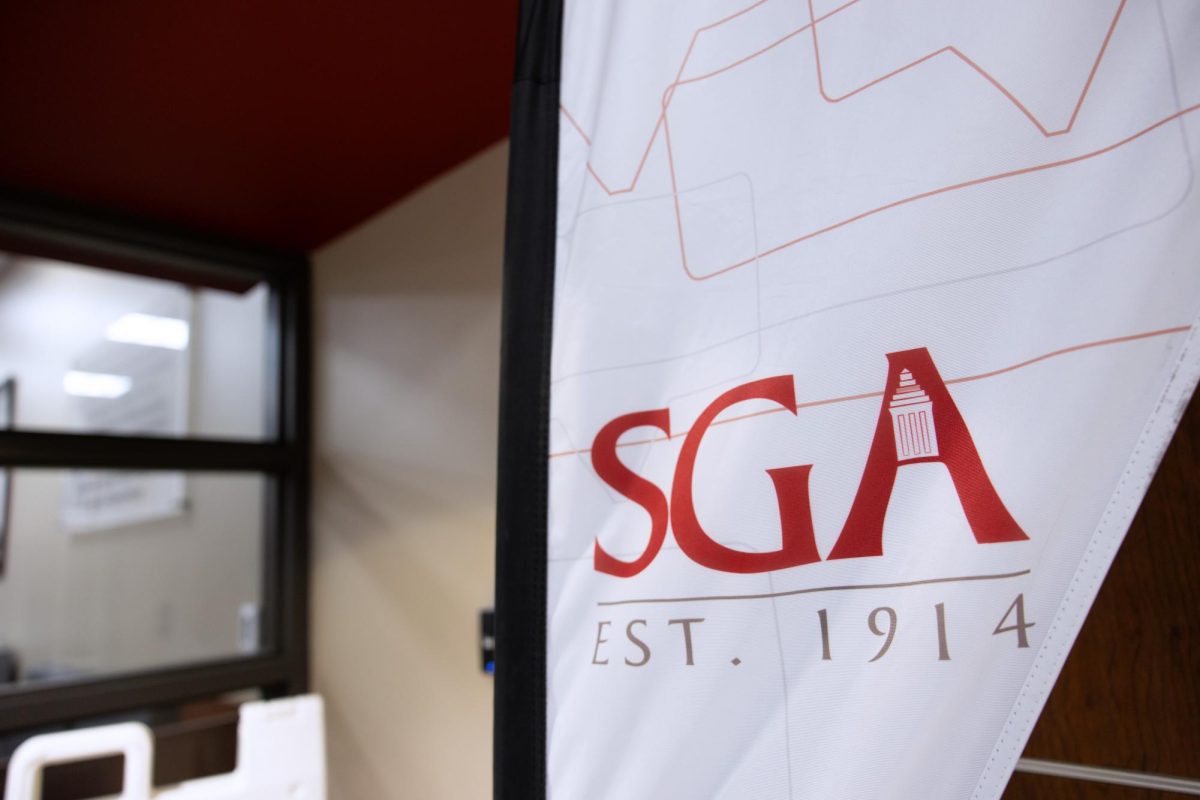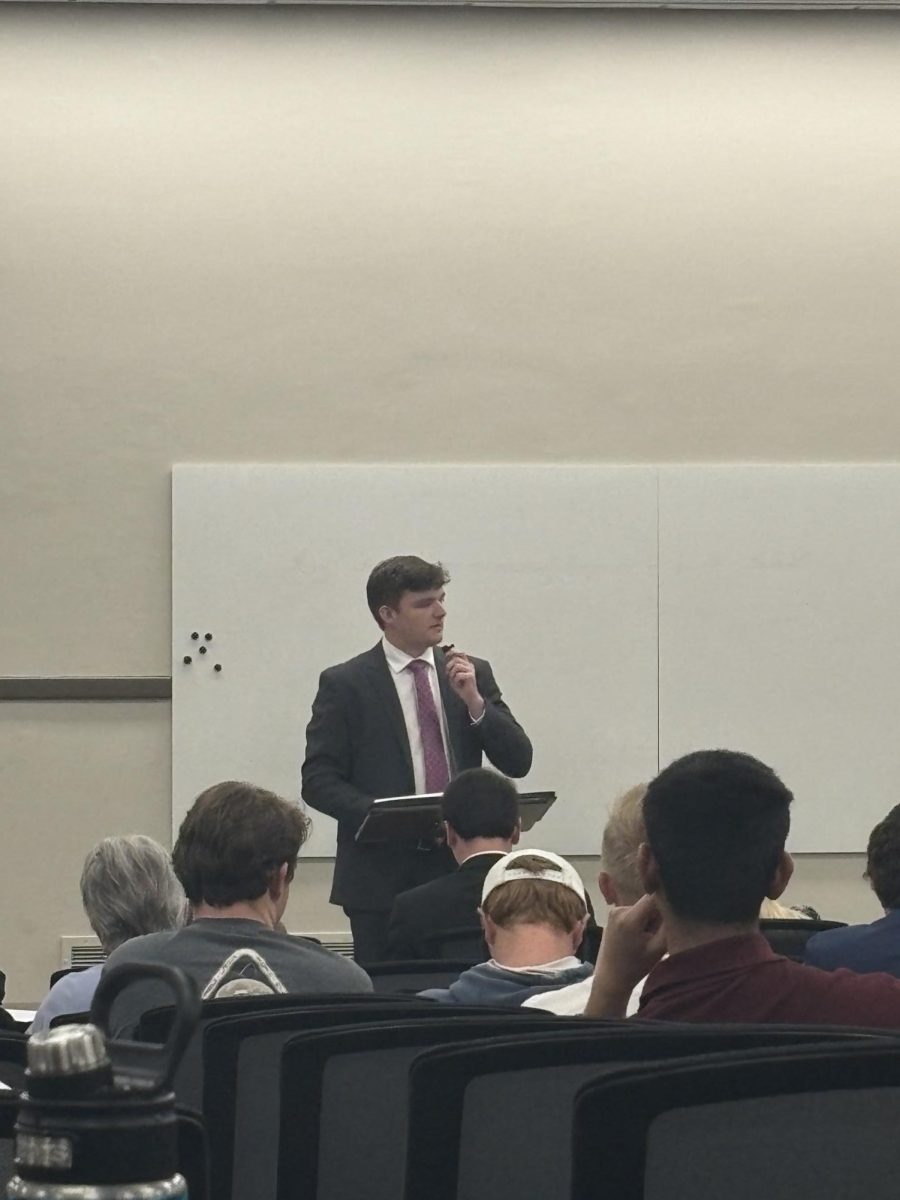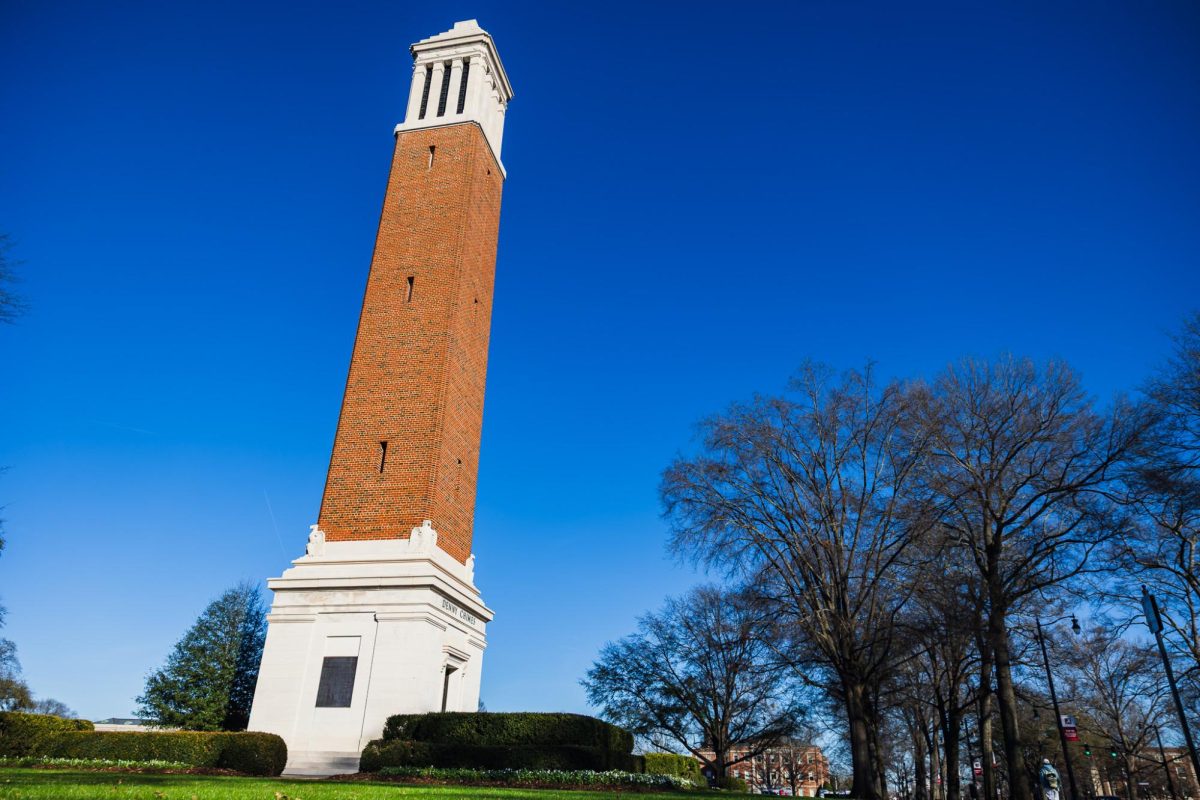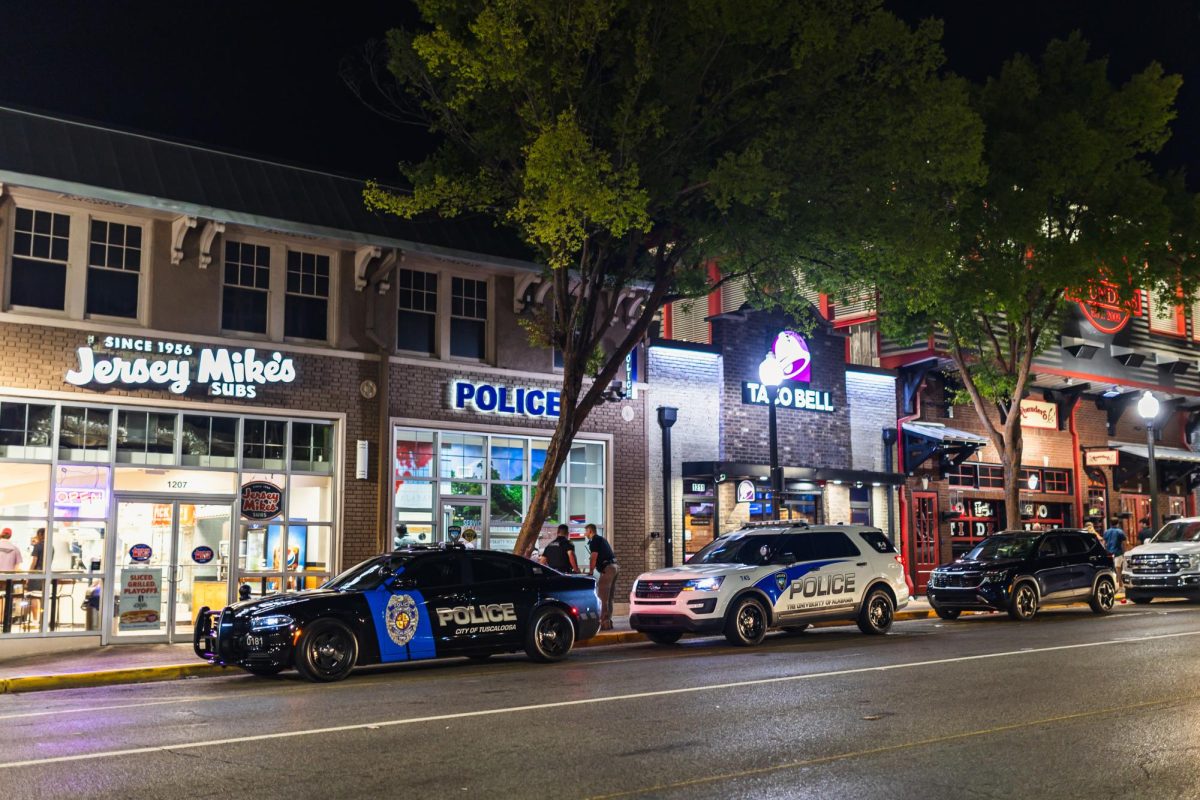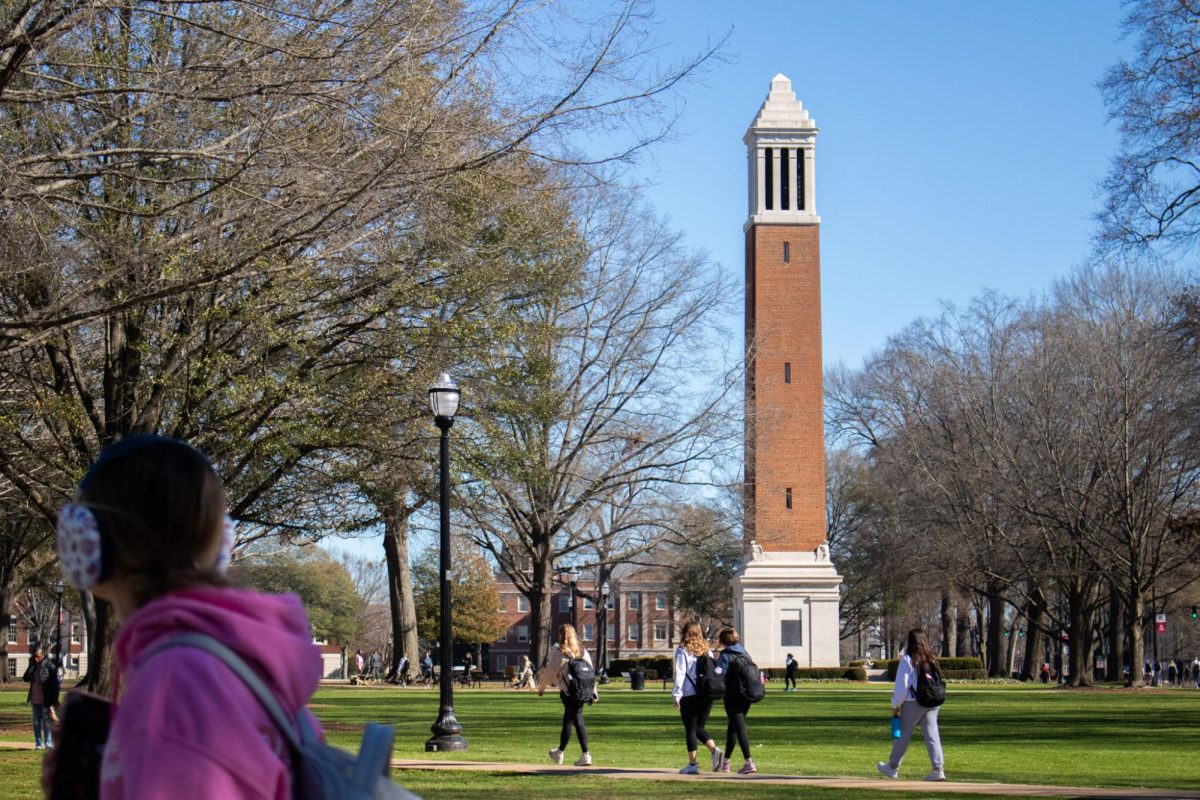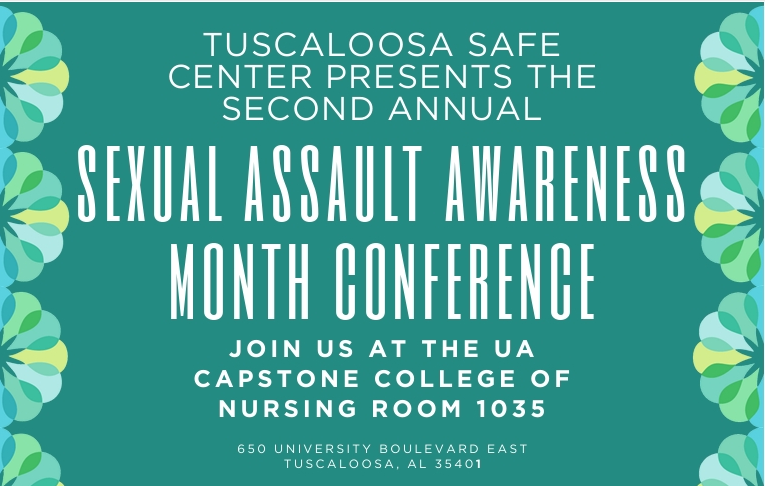Memories can be triggered in many ways. Looking at a picture can trigger a person’s memory, taking them years in the past, or a certain smell can transport someone many miles away. One tool that has been extensively researched and shown to jog a person’s memory in even more extensive ways, is music. Music is a tool for expression, but it is also a tool for remembrance.
Research shows that music can calm a person’s mind, help them focus and recall memories. This has been especially true and useful when it comes to helping with Alzheimer’s Disease, the most common form of dementia.
More than 5 million Americans are living with Alzheimer’s. For the non-profit Music & Memory, it is important that these people get exceptional care, not just through medicine, but through music.
Sarah Loper, a senior majoring in communications studies and the president of The University of Alabama’s Music & Memory chapter, said the organization’s main goal is to holistically treat Alzheimer’s.
“We’re trying to, in a way, lobby against these psychiatric drugs these patients are given for memory loss, cause there’s really nothing you can do,” Loper said. “Music’s really the only thing that’s been shown thus far to really treat these symptoms without any of the negative effects from these drugs.”
Loper cited isolation, depression, anxiety, mood swings and anger as some of the negative side effects of psychiatric drugs used to treat Alzheimer’s.
Heather Keith, a senior majoring in psychology and the events coordinator for the campus chapter of Music & Memory, added that the organization’s mission is to help Alzheimer’s patients have peaceful, happy lives.
“Our mission is to bring overall happiness to people who seem like they’ve lost everything,” Keith said. “Music is the best way for people with Alzheimer’s to reach out and be free.”
Music & Memory became a national non-profit organization in 2010. It all began with Executive Director Dan Cohen’s desire to listen to his favorite music if he ever ended up in a nursing home, coupled with his realization that none of the 16,000 long-term care facilities in the U.S. used iPods for their residents. Armed with the scientific evidence backing the connection between Alzheimer’s treatments and music, as well as funding from the Shelley & Donald Rubin Foundation, Cohen began circulating iPods throughout long-term care facilities in New York.
For Loper, the desire to work with Music & Memory traces back to her family’s history with Alzheimer’s. Both of Loper’s great grandparents suffered from Alzheimer’s and dementia.
“I could remember them not remembering who I was,” Loper said. “But I remember going to church with them every Sunday and them singing all of the hymns without a hymnal.”
This always fascinated Loper, and when she was a junior in high school, she came across the documentary Alive Inside, which is about Music & Memory.
“It validated what I had always thought about the connection between music and Alzheimer’s,” Loper said. “I went to their website and started to volunteer.”
In February of this year, Loper officially started the University’s student chapter of Music & Memory. The student organization already has 25 active members.
“We’re just a very tight-knit, family-oriented organization,” Loper said. “We all come together with the common knowledge that there is a need for people with Alzheimer’s and that this is a very unique way to treat it. We all love music, and we get to share that with people who need it and love it.”
Keith became involved for similar reasons, citing her grandmother’s struggle with Alzheimer’s as her primary motivation for joining the chapter.
“I got involved through Sarah,” Keith said. “She had posted something on her Instagram asking for help with the non-profit. My grandmother had Alzheimer’s and one thing she remembered was music, so I reached out and got involved.”
To support their mission, the University’s Music & Memory chapter is holding an iPod donation drive. Students can donate old iPods and iTunes gift cards to help the organization and Alzheimer’s patients. Next semester, Music & Memory will hold a similar iPod drive for the entirety of April.
“Right now, we’re just trying to get our names out there and let people know who we are,” Keith said. “We’re always looking for members to help, too.”
Students wishing to donate can find Music & Memory on the second floor of the Ferguson Student Center on Thursday, Nov. 30 from 11 a.m. to 5 p.m.
For more information on Music & Memory, students can visit musicandmemory.org or find the University chapter on Instagram at musicandmemory.tuscaloosa.



